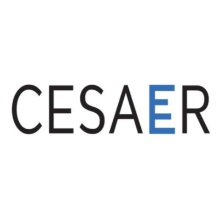CESAER, the strong and united voice of universities of science and technology in Europe, has established seven task forces to implement the biennial work cycle from 2022 to 2023. The University of Stuttgart and SimTech are involved in the task forces on “Openness of Science & Technology” and “Innovation”.
Amongst the around 30 members of the task force “Openness of Science & Technology” is Sibylle Hermann, Data and Software Steward in SimTech. This is another approach of SimTech and the University of Stuttgart to promote and expand the topic of Research Data Management. The task force addresses three main themes: Open Science, knowledge safety and security and citizen science.
“Working in the task force I have the insight into what is important in Europe and I can transfer these impulses into my own work. At the same time, I can bring my experience from research-related work at SimTech into the group”, states Sibylle Hermann.
Jörg Fehr, Participating Researcher in SimTech, however, is member of the task force “Innovation” that promotes (disruptive) innovation and impact strategies for the CESAER members by contributing to knowledge societies for a sustainable future. The key focus is on increased dissemination and exploitation of scientific knowledge and technology, and cooperation with business, industry, public services, not-for-profit organisations and society at large. It works closely together with the task force “Openness of Science & Technology”.
“Within the workgroup, I represent the knowledge committee of SimTech. We learn from best practices within Europe and SimTech contributes from its rich knowledge and success regarding the creation and distribution of innovation. Personally, I find my position in this group very interesting because some of the people are on the University board level, others work in the knowledge transfer/innovation support offices of their universities. In contrast, we as researchers and professors live inbetween; we follow and contribute to the university's policies but have sometimes dealt with the administrative hurdles” explains Jörg Fehr.
CESAER was founded in 1990 as non-profit association under Belgian law and is hosted by KU Leuven. The association unites over 50 leading research-intensive specialised and comprehensive universities of science and technology from 28 countries in Europe and beyond. CESEAR is also a founding member of the EOSC association.


